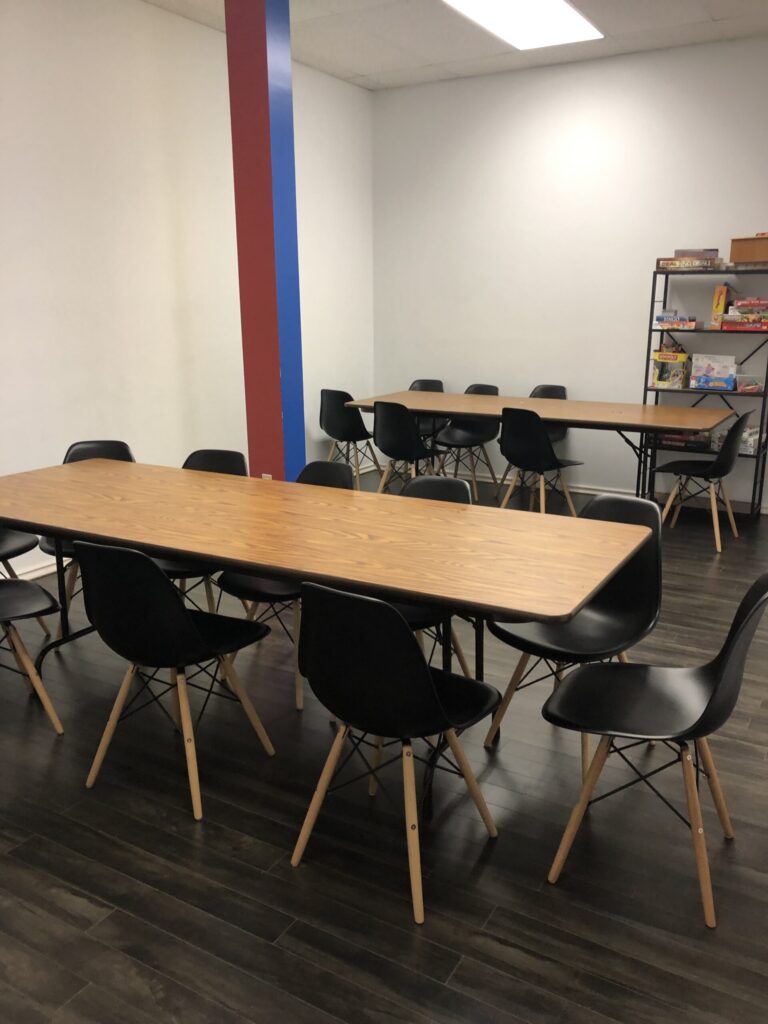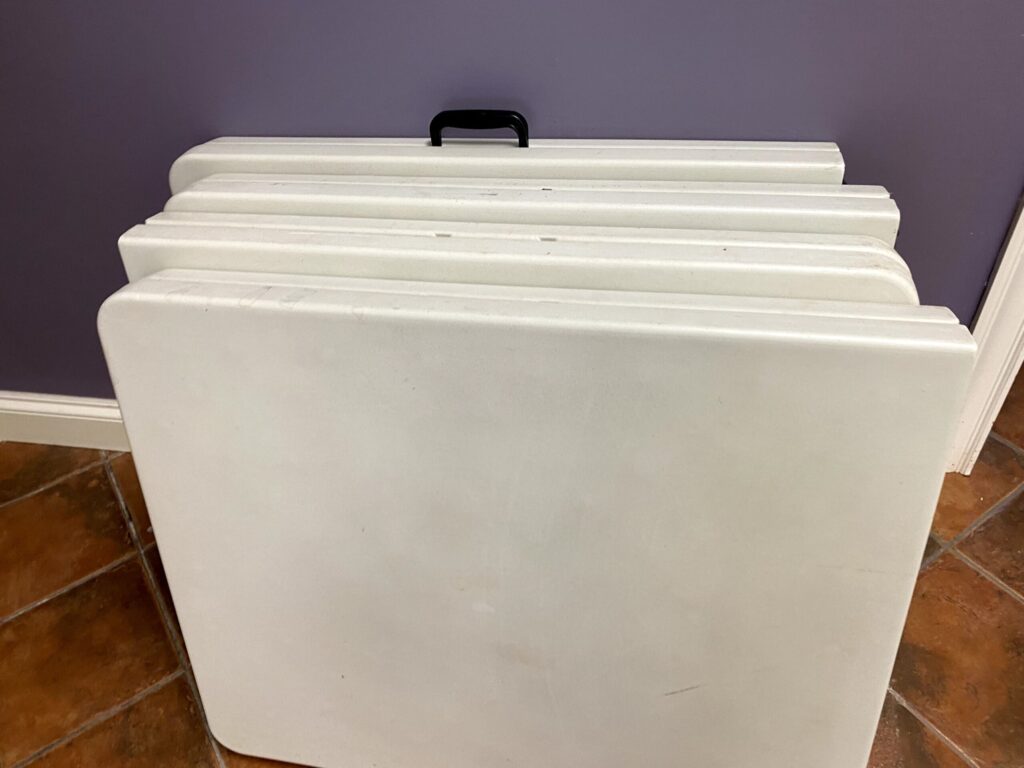You could lend a campaign things you are not using:
Furniture:
Furnishing a campaign office can be difficult. Check with campaigns if they need some furniture. It will need to be sturdy and in good condition to avoid any potential injury. If you smoke, it may not be welcomed as the smell of cigarette smoke can affect the office. Check what they need and do not take offense if they do not want what you have. You may need to drop it off and pick it up immediately after the election. Usually a campaign office will only be open 6 to 8 weeks.
- Desks (multiple)
- Desk chairs (multiple)
- Tables (especially those sturdy folding tables you may use for yard sales)
- Other chairs (make sure they are safe and in good condition – we don’t want any accidents)
- Good condition sofas and easy chairs
- Coffee table
- Room dividers, plants, coat rack, pinball machine, whiteboard, dolly, cart – see what else they may need.
Equipment:
- Telephones – don’t have a landline any more? Still have the phone? Wired phones best. Give them a thorough clean so they are nice to use (buttons and handsets and cables)
- Printers – do you have a printer you do not use? Is it a printer, fax scanner? Don’t just drop it off – make sure it works and ink is still available – help the campaign manager set it up as computer skills may be in short supply among campaign organizers,
- Laptops – do you have an old laptop (or even an old Chromebook) you can lend a campaign that would be great. Campaigns use online databases, so having multiple laptops that can access the web easily is very helpful.
- Cellphones – have an old cellphone – can you put in a pay as you go SIM and lend it to the campaign?
- Coffee machine – so nice to have coffee available
- Kettle
- Barbecue(s) – in the “non-winter”, having an appreciation event for volunteers or an outreach event to recruit volunteers or identify voters is great. You need a couple of barbecues (remember some voters will be vegetarian, vegan or not want to have different meats on the same barbecue). If you can drop one off and pick it up after an event and cook some food in between you will be a wonderful resource.
You could give a campaign things you have:
Money:
- Campaigns need money – not fundraisers (they take a lot of time and there are MANY rules which make them unfeasible in many cases). Donations get generous tax rebates too. Donating online to a specific campaign is the least amount of administration for the Official Agent in most cases. THIS IS THE SINGLE MOST IMPORTANT THING YOU CAN DO TO SUPPORT PROGRESSIVE CAMPAIGN. They need money to pay for phone bills, advertising, signs, mailings, printing, etc etc etc.
Time:
- Together with donations, donating your time is the biggest thing you can do to help. Campaigns need people to:
- Knock on doors
- Make phone calls
- Staff offices (be there to answer the phone and meet drop-in volunteers and help look after the phone crew or cold door knockers coming back from a shift)
- Make food, deliver food, shop, put together little gifts for volunteers (homemade cookies in an individual bag for a volunteer shift would be a heavenly thing)
- Signs
- Put up signs
- Take down signs
- Deliver signs (if you have a van, minivan, or truck you will be very popular but amazing what you can do with a car – especially a “hatchback” )
- Build wooden frames on the big signs
- Take people to vote
- Bring people to volunteer shifts
- Be poll scrutineers (hang out at polling places and counts to make sure there is nothing untoward going on and report the results back to HQ)
- Official agent – you do not need to be a lawyer – accounting skills are probably more important. Anyone who is organised, good with money and numbers and can read and interpret rules and guidance can be an official agent.
- Writers – can you craft a good email or answer lots of questions, researching the answers from policy documents?
- Debate coaches – if you have specialist skills helping people with public speaking – your skills may be needed. But again – if we need people to make phone calls – that may be the best thing you can do in the meantime.
- People with good IT skills. If you can use a corporate database (like your HR system, your finance system at work or your customer relationship manager system) then you will be great to help with the election data. People can be scared by IT so if you can help them feel comfortable and “troubleshoot” login and other problems, it is very helpful.
- Advanced IT skills – If you can setup the wifi, troubleshoot the printer, help with VOIP phones, help someone upload (and download) the documents from Elections Canada or from the central campaign – you will be very helpful.
- Generally campaigns do not need:
- Strategists – most campaigns are simple – identify your voters and get them out to vote. If you can help to make this happen – that is great – and if you add more experience and ideas that is great too – but start helping with the basics and get to understand the campaign.
- Policy experts – policy tends to come from the centre and has been developed well before an election is called.
- Campaigns really need you to prove yourself by knocking on doors and making phone calls BEFORE you can walk into leadership positions.
If you don’t have a candidate you can/want to support:
- https://www.leadnow.ca/ sometimes run campaigns supporting certain candidates like their “Climate Champions” – so wherever you are you can make calls or help out to elect progressive champions.
- https://canadians.org/ – worth checking out, to see if they run an election campaign.
- https://davidsuzuki.org/
- https://www.facebook.com/groups/202574333589906/ – Nova Scotians for Public Libraries
- http://www.strategicvoting.ca/ – when you need to vote to prevent something and not split the progressive vote
- Check out what your union is doing too.


